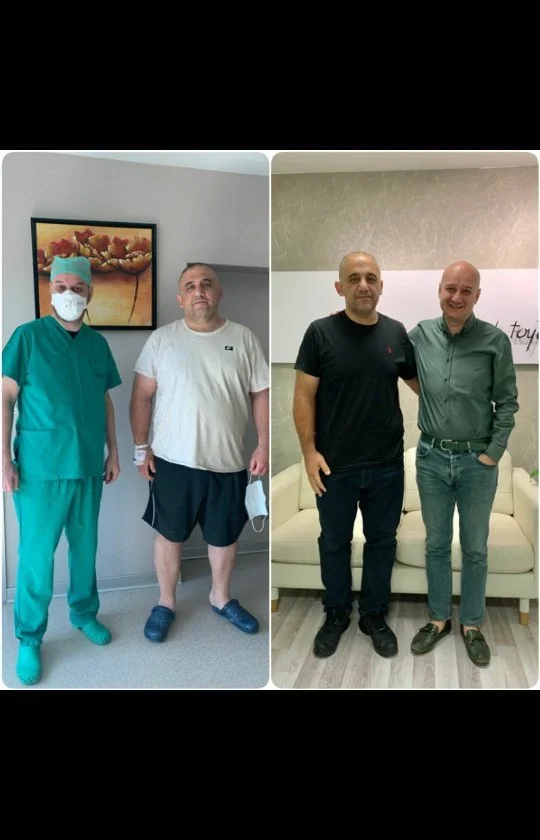

Average Cost for Sleeve Gastrectomy Country by Country
What Exactly Is a Gastric Sleeve?
A gastric sleeve is a type of surgery that reduces the size of the stomach. This is achieved by removing a sizable portion of the stomach, leaving behind a long, tube-like pouch. Imagine a deflated balloon that is pinched and sealed from the side, so only a narrow passage stays—this is somewhat like what happens in a gastric sleeve procedure. When the stomach is made smaller, there is less space to hold food. This change often translates to feeling full much faster than before. It also changes certain hormones related to hunger, reducing appetite and contributing to weight loss over time. In essence, the operation addresses both physical capacity and biological signals that drive the want to eat.
Why Do People Seek Gastric Sleeve Surgery?
Obesity can present many health challenges, including an increased risk of diabetes, heart disease and joint problems. These issues can hinder day-to-day activities and negatively affect quality of life. Gastric sleeve surgery aims to lower these risks by helping individuals reach a healthier weight. It is sometimes seen as a long-term strategy for those who have struggled with traditional weight management methods like diet and exercise. Many individuals try different approaches and find that progress slows down or the weight keeps returning. At that point, a surgical choice may become an appealing consideration. Furthermore, achieving a healthy weight has receives help beyond physical health. It can boost energy levels, improve self-esteem and potentially reduce reliance on certain medications. When the stomach's capacity is restricted, the body essentially receives a message that it is satisfied with less food, thereby reducing the urge to overeat. It is often likened to converting a large car fuel tank into a smaller one, so it needs less to run efficiently.
Why Consider Turkey for This Procedure?
Turkey has gained a positive reputation in medical tourism circles for a few key reasons. First, many hospitals are accredited by international organizations, demonstrating a consistent level of quality and patient safety. Second, the overall cost for a gastric sleeve can be significantly lower compared to some Western countries, even when factoring in travel expenses. This affordability, combined with a tradition of hospitality, has paved the way for an increasing number of individuals to make Turkey their choice for bariatric surgery. Another factor lies in the availability of experienced surgeons and specialized medical teams. Over the years, healthcare professionals in Turkey have often performed gastric sleeve procedures, leading to a level of skill that many find reassuring. English-speaking staff and well-structured patient support systems often ease any anxieties related to traveling for surgery.
How Is the Procedure Performed?
In most cases, a gastric sleeve is performed using a minimally invasive technique called laparoscopy. This means small cuts (incisions) are made in the abdomen, through which a tiny camera and instruments are inserted. The camera projects images onto a check, allowing the surgeon to operate with precision. Once the portion of the stomach is removed, the staying section is sealed with surgical staples, creating a narrower tube. Laparoscopy generally involves smaller scars and can lead to a shorter recovery period compared to traditional open surgery. Pain levels and hospital stays also tend to be lower. While these outcomes vary from person to person, many individuals find that this approach can help with returning to everyday life more quickly.
What About After the Surgery?
Patients normally stay in the hospital for a brief observation period. During this time, medical staff check the body's response to the procedure and watch for any signs of complications. Adjustments are made to ensure comfort and safety. Once clearance is given to leave the hospital, many experience a sense of relief as they begin the next phase of their weight loss journey. Recovery can involve several changes in eating patterns. Initially, there is a need for softer or puréed foods, eventually transitioning to a balanced diet that includes protein, vitamins and minerals. The body is adapting to a reduced stomach size, so smaller, more frequent meals can be part of a new routine. There is often guidance from dietitians or nutritionists who specialize in post-surgical eating plans. Supportive follow-up care helps many patients adjust to this new way of life and develop healthier habits for the future.
Are There Any Risks or Side Effects?
All surgical procedures carry some degree of risk and a gastric sleeve is no exception. Possible complications can include infection, blood clots or leakage along the staple line. Although such issues are relatively rare, it is important to be aware of potential challenges. Some individuals may also experience acid reflux or they might find that certain foods feel different in the reduced stomach pouch. It is helpful to think of the procedure as creating a custom-fitted garment: if it is too tight or not lined carefully, it could lead to discomfort. However, when performed by an experienced surgical team, the likelihood of serious complications is minimized. With the proper checking and follow-up, many feel supported throughout their entire experience.
How Long Does It Take to See Results?
Significant weight loss is often observed within the first few months, continuing steadily over the first year. The stomach's reduced size limits daily food intake, which, combined with a balanced diet, can contribute to a steady decline in body weight. This transition is commonly went with by improvements in conditions like type 2 diabetes, high blood pressure and sleep apnea. It is sometimes compared to a marathon rather than a sprint, as healthy, lasting changes typically appear over time. The body adjusts to the new stomach pouch and lifestyle habits evolve to match this shift. Consistent follow-up with healthcare providers, including nutrition and exercise specialists, helps many individuals keep momentum and focus on sustainable progress.
How Does the Experience in Turkey Support These Outcomes?
A key aspect of Turkey's medical tourism industry is the comprehensive support provided before, during and after surgery. Beyond the procedure itself, healthcare providers often include consultations, thorough health checks and specialized diet plans as part of the overall package. Another advantage is the opportunity for rest and recuperation in a country known for cultural richness and hospitality. The comfort offered by well-equipped facilities and staff who are accustomed to international patients can bring more peace of mind. Many find that having the procedure in a setting where medical care is combined with a welcoming atmosphere contributes to a positive experience.
Is Gastric Sleeve the Right Option?
A gastric sleeve is generally recommended for individuals with a higher body mass index (BMI) or those dealing with obesity-related conditions. Yet it is not a one-size-fits-all approach. Factors such as overall health, lifestyle and personal commitment to long-term changes play significant roles in the success of the procedure. Some may find that another type of bariatric surgery better suits their situation. A thorough medical evaluation is an essential part of confirming whether this choice aligns with personal health goals. Gastric sleeve surgery in Turkey can be a viable and effective choice for managing obesity. The country's medical infrastructure, combined with expert teams and affordability, draws people from around the world. Although every procedure has risks, the potential receives help for both physical and emotional well-being are significant. By reducing the stomach's capacity and helping to regulate hunger hormones, a gastric sleeve can offer a valuable head start toward a healthier lifestyle. The journey ahead may still need determination and mindful eating habits, but many find that taking this step brings renewed hope and motivation for lasting change.


































